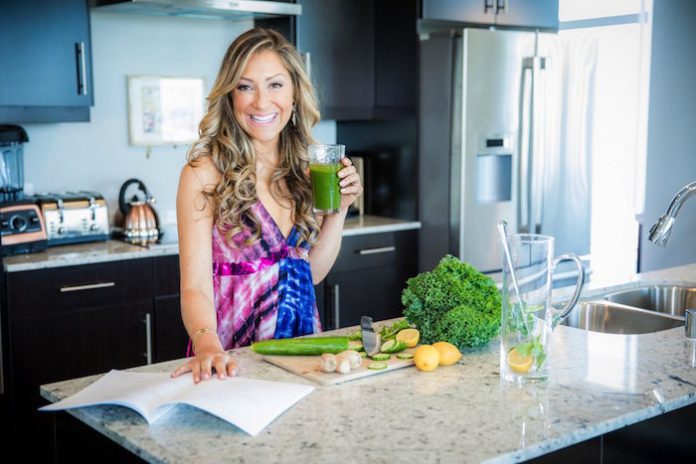If you haven’t added kelp to your daily regimen, then you are missing out. When you think of kelp, you may automatically imagine sushi. Quite the contrary! Yes, it is a type of seaweed, but it’s so much more that that!
There are tons of nutritional benefits, and it’s super easy to incorporate into your daily regimen.
“Kelp is an algae seaweed,” Dr. Olivia Audrey explains. “The flora and fauna makeup of kelp is a bit different and more nutrient rich than other seaweeds.”
So, what are the nutritional benefits? Well, we will rely on the experts for that! We got the chance to speak with Dr. Olivia Audrey and nutritionist Melissa Kathryn about the benefits of kelp, and they also provided a few ways to eat the nutrition-packed seaweed!
How might kelp reduce your risk for diabetes?
Not only is kelp a nutrient-dense food that is low in calories and fat, but it also plays a part in improving your overall gut health. It’s a fantastic source of vitamins and nutrients, including vitamin K, vitamin A, calcium, iron, and magnesium.
“Kelp contains high amounts of vanadium, which has been shown to assist in glucose and insulin regulation. This component is also useful for thyroid health, weight management and as a cancer preventative,” Audrey states. Kathryn adds: “Kelp has been shown to support in regulating blood sugar. It also discourages the formation of blood clots and lowers the risk of heart attack and stroke. The algae in kelp dissolves the deposits inside arteries and gradually removes the existing buildup of these deposits, which is wonderful news for pre-diabetics.”

How might kelp benefit bone health?
Kathryn explains that in order to avoid osteoporosis and strengthen your bones, it’s no longer just enough to up your calcium.
“Kelp contains high amounts of vitamin D, which is essential for bone health as well as 150mg of calcium per serving. These important factors working together make a positive impact on bone health and maintenance.” Audrey explains. Nutritionist Melissa Kathryn adds: “To make this food even more fantastic and better for your bones, it contains a lot of magnesium–a mineral that helps to alkaline the body.”
Can you give our readers a few ways to cook or eat kelp and add it to their diet daily to reap these benefits?
“It’s super easy to add kelp to your diet,” states Kathryn. “Try out my five favorite ways to cook or eat kelp!”
1. One of the easiest and most convenient ways is to buy and start using kelp powder. This nutrient-dense powder can be used in a variety of your favorite recipes. Add it into your favorite morning smoothie, mix into salad dressing, or make kelp tea to reap the benefits.
2. Kelp seasonings! Dried kelp can replace salt in your favorite poultry or seafood dishes and more. It is a spice that is great to use to take your dishes and health to the next level, and it is available in convenient shakers. They make a great flavor addition to your stir-frys, marinades, and even popcorn! Two I love are Braggs Sea Kelp Delight or Marine Coast Sea Vegetables Shaker.
3. Kelp noodles are delicious and can be easily found at grocery stores, health food stores like Whole Foods, or bought online on Amazon. Try swapping out your pasta for this low carb alternative, or use them to create a tasty kelp noodle salad, either hot or cold. Try adding these to soup broths as well!
4. Adding seaweed to your diet can be very simple. The big sheets of dried nori used in sushi also make a great substitution for tortillas or bread, and they can make delicious wraps.
5. Serve it cold with sesame seeds and oil.
6. You can either steam, sauté, or boil dried kelp to serve as a side dish or use in a recipe. About 15 minutes is required to cook dried kelp, no matter which method of cooking you choose. Once cooked, the kelp will keep for up to three days in the refrigerator, but is best used right away.
Kelp is a superfood that aids in living a long, healthy life, not to mention its beautifying and body balancing properties! It is an alkaline pH food that has a high mineral content, low-glycemic index, and contains high fiber content, along with lots of Iodine. As always, there isn’t one serving fits all, so be sure to consult your doctor to avoid consuming too much kelp for a daily serving.
Find a Home-Based Business to Start-Up >>> Hundreds of Business Listings.

















































